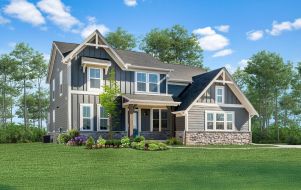Aedes Architecture Forum Unveils Zhu Pei’s ‘Poetic Imaginations’ at Berlin
The visionary Beijing-based Studio Zhu Pei has unveiled a captivating solo exhibition titled 'Poetic Imaginations' at the Aedes Architecture Forum in Berlin. This exhibition includes six architectural projects, each a masterpiece unto itself, distinguished by particular settings and objectives but bound together by shared architectural elements such as forms, materials, and structures. Visitors are invited to explore the creative brilliance underlying these structures through an extensive array of architectural models, drawings, films, and publications. Traditional Chinese philosophy, particularly the idea of harmony between humans and nature, significantly influenced Zhu Pei and gave his artwork a strong sense of environmental connection.
Harmony Between Tradition and Innovation
In a candid interview with Designboom, Pei articulates his design principles, emphasizing the significance of seamlessly integrating spaces with their surroundings. He expresses his aspiration for visitors to depart the exhibition with a heightened appreciation for architecture's capacity to unite people, culture, and the natural world. Central to Pei's philosophy is 'incomplete integrity,' advocating for architecture that evolves, embracing interpretation and adaptation. The exhibition serves as a testament to Zhu Pei's vision of an 'Architecture of Nature,' which prioritizes aesthetics and addresses pressing contemporary issues such as climate change and cultural preservation. Through exploring these projects, visitors gain profound insights into the translation of architectural theory into tangible, meaningful spaces that resonate with history and modernity.
In an illuminating dialogue with Zhu Pei, the concept behind the exhibition, 'Poetic Imaginations,' and its fusion of architecture with traditional values are elucidated. Pei elucidates that the exhibition serves as a continuum of his earlier showcase at Aedes in 2017, reflecting upon architecture's role amidst challenges such as climate change and cultural shifts. He emphasizes his design philosophy, 'architecture of nature,' which underscores the symbiosis between innovation and tradition. Pei highlights the importance of striking a balance between tradition and innovation, harnessing the power of tradition to address contemporary challenges.
Also Read: World's Top 8 Most Remarkable Homes Redefining Modern Architecture, Energy Efficiency
Preserving Cultural Heritage in Modern Architecture
When questioned about preserving cultural heritage while meeting modern demands in his projects, Pei emphasizes the significance of delving deep to uncover the intelligence within visitors or ecosystems. He cites the Imperial Kiln Museum project as an exemplar, wherein tradition is a wellspring of inspiration. Pei's meticulous attention to detail is evident in the museum's design, which seamlessly integrates past heritage with contemporary needs, utilizing reused and recycled materials to create sustainable architectural marvels.
Blending Tradition with Contemporary Context
Despite the diverse natural landscapes and cultural narratives of the six projects displayed in the exhibition, Pei elucidates the underlying principle that unifies them: his design philosophy through concepts such as 'seating posture,' 'the cave and the nest,' and 'sponge architecture,' Pei endeavors to create spaces harmonizing with nature, promoting sustainability, and encouraging flexibility. He underscores the concept of 'incomplete integrity,' asserting that architecture must evolve, leaving room for interpretation and adaptation by future generations.
Pei articulates his hopes for visitors to glean a deeper understanding of architecture as a profound art form, transcending mere aesthetics to embody a holistic experience. He underscores the exhibition's resonance with the concept of incomplete integrity, inviting visitors to engage imaginatively with architectural ideas. Ultimately, 'Poetic Imaginations' prompts us to reevaluate the essence of architecture, urging us to envision a future where humanity, culture, and nature merge in harmony, extending life together in a symbiotic dance of evolution and renewal.
Related Article: Who Will Claim the Coveted 2024 Pritzker Prize in Architecture?














